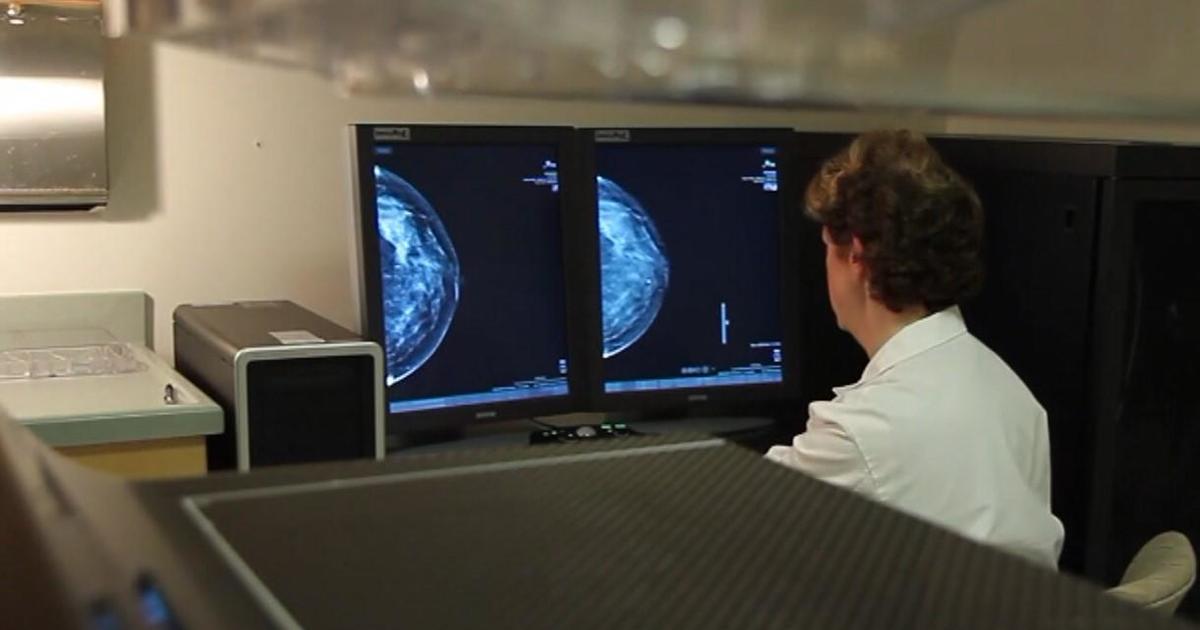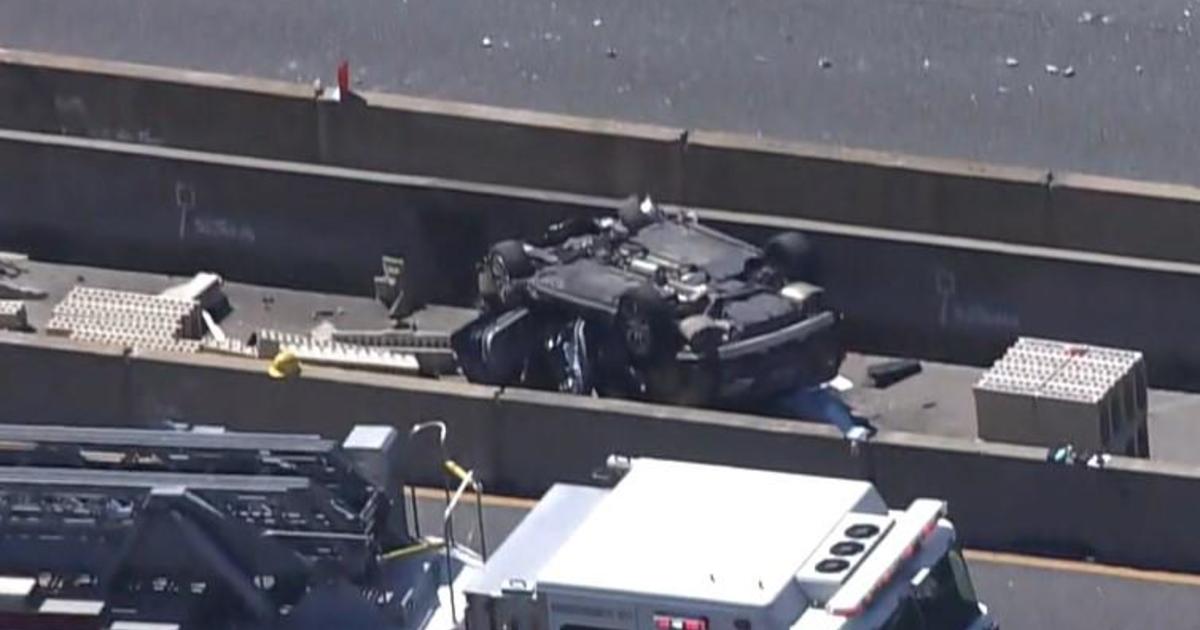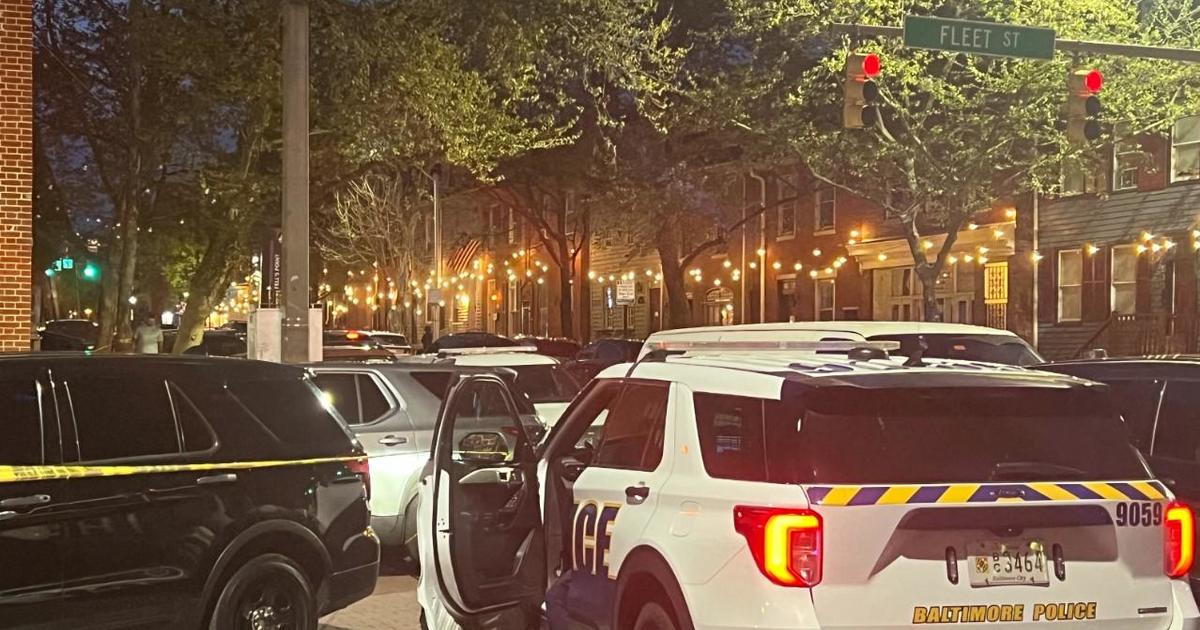2018 Maryland Primary Candidate | Krish Vignarajah
Krish Vignarajah is a Democrat vying for the governor's seat in Maryland. She must face off with seven other candidates in the Maryland primary. These are her unedited answers to WJZ's questionnaire.
Name: Krish Vignarajah
Age: 38
Hometown: Baltimore, Md.
Current Town/City of Residence: Gaithersburg, Md.
Political platform:
My top priorities are education, revitalizing the economy, protecting the environment, and making Maryland Work for Working Families. We need leadership in Annapolis that commits to increasing job and educational opportunities across the state while addressing the critical challenges that Marylanders face on a day-to-day basis, ranging from limited healthcare access to the opioid crisis, and crumbling infrastructure to the severe need for criminal justice reform.
We must ensure economic growth in Maryland while protecting the character and environmental quality of our natural landscapes. We cannot build a better Maryland without investing in the industries that make our state unique, but we must also aim to diversity the range of economic opportunities for Marylanders as well. We must prioritize changes to our criminal justice system and end the school to prison pipeline. And we must ensure that all Maryland students have access to a high quality education, regardless of their race, zip code, or county.
I'm running to produce tangible results for all Marylanders. We are all tired of politicians holding press conferences to announce policy, and then failing to deliver results or improve lives. I'm committed to elevating underrepresented voices and ensuring that government works for everyone.
Tell us about your experience
I recently finished serving as Policy Director for Michelle Obama and led the First Lady's signature Let Girls Learn initiative. Before the White House, I served as Senior Advisor at the State Department under Secretary of State Hillary Clinton and Secretary of State John Kerry. During the Obama Administration, I managed and led White House and State Department programs related to entrepreneurship, private sector investment, infrastructure, women's issues, engagement with youth and religious communities, climate change, and budget development and execution.
Before joining the White House, I worked at McKinsey & Company, where I consulted for Fortune 100 companies, practiced law at Jenner & Block in Washington, DC, clerked for Chief Judge Michael Boudin on the U.S. Court of Appeals for the First Circuit, and taught at Georgetown University as an adjunct. An advocate of women and girls, I have spoken widely on gender equality in name and in fact, including to young women at Western High School as well as at Hood College where I delivered the commencement address in 2017.
Tell us about your family:
I was 9-months old when my family and I escaped a country on the brink of civil war and built a life in Maryland. My parents came to this country with no jobs and $200 in their pockets. The Maryland where I grew up gave my parents opportunities to serve as public school teachers in Baltimore City. But Baltimore schools were more than an employer for my parents; my parents' colleagues became part of the family as teachers and principals alike helped new immigrants navigate a new country and become part of a new community as neighbors. My mother started teaching at Poly High School and ended her teaching career at Morgan State University, while my father, who retired this past spring, taught for over 50 years, including 37 years in Baltimore City public high schools (including Edmondson, Frederick Douglass, Digital Harbor and Western). My husband, Collin O'Mara, and I got married on the Eastern Shore, along the waters of the Chesapeake Bay. Collin is a conservationist and sportsman who currently serves as CEO of the National Wildlife Federation. Almost exactly one year ago, in June 2017, we welcomed a new baby girl, Alana.
What do you view as Maryland's most pressing issues?
Education: I believe in guaranteeing high-quality universal Pre-K and providing free access to healthy lunch and breakfast to close the achievement gap. I hope to expand STEAM education in Maryland and ensure free community college and job training to guarantee that graduating students are career-ready.
Economy: I will create 250,000 well-paying private sector jobs by encouraging innovation, the support the growth of small businesses, reducing traffic to minimize lost wages and gas expense, providing universal broadband access, and expanding opportunity in Southern Maryland.
Environment: Climate change threatens our entire way of life in Maryland. Maryland needs an active leader on climate and clean energy who works to cut greenhouse gas emissions and secure a clean-energy future. I will secure environmental justice for vulnerable populations by guaranteeing clean water and reducing air pollution and conserving Maryland's landscapes.
Working for working families: I will guarantee 3-months of paid family leave to working families. This would build stronger families and improve employee loyalty and productivity. I will address the issue of gender equity by making sure that more women have representation in our state government. I hope to make Maryland the most immigrant-friendly state in the US by resisting Trump-led immigration enforcement efforts.
How important is bipartisanship in state government?
I'm committed to getting the job done. When I worked at the highest level of federal government as Michelle Obama's policy director, I recognized that change requires cooperation across multiple branches and multiple perspectives. Crafting and passing policy depends on this approach to governance.
I believe that it's important to emphasize this approach in state government because so many of the problems that need addressing are not partisan issues. We require a Maryland that works for everyone. We must end the school to prison pipeline that prevents human and economic growth and instead work to provide job training and affordable college. Pollution and climate change require a bipartisan response in order to ensure that Marylanders enjoy healthy and safe drinking water and air. Expanding access to affordable healthcare, naxolene, and health clinics in rural regions and urban centers alike is a top priority. As Governor, I will never sideline any issue, any region, or any constituent because I aim to lead work a state government that works for everyone. I plan to work with regional and local governments and leaders to ensure that every constituent is represented and local needs addressed. I will never prioritize party over Maryland.
Are there personal experiences that have contributed to your decision seek office?
I am running for Governor because I am worried my daughter and all children in Maryland will not have the same opportunities that my mom gave me when she brought our family here when I was a baby girl. I hope Marylanders will agree the best man for the job is a woman.
It was not long ago that Maryland was a beacon of hope, opportunity, innovation, and courage. We led the nation in school performance, job creation, and conservation. But today too many of the students who can least afford to be left behind have been forgotten altogether. Too many workers have been left out. And our precious Chesapeake Bay faces its greatest risks in decades. A deficit in leadership from the Governor could not come at a worse time.
I am running for Governor because Maryland must lead again. As Governor, I will focus on what matters most—improving schools, increasing wages, reducing crime, treating drug addiction, alleviating traffic, investing in infrastructure, and protecting our sacred environment. We need a new generation of leadership that will make progress at home, while standing up to a White House that threatens the very values that unite and define us.
What sets you apart from the other candidates in the primary race?
I am the only candidate for governor who attended Maryland public schools K-12. I'm a mom, an immigrant, and the daughter of two Baltimore City public school teachers. And with my running mate Sharon Blake, former president of the Baltimore Teachers Union and a public school teacher for four decades, our run represents the first all women-of-color ticket in national history.
But my campaign isn't just about representation; it's about policy. I've seen first-hand the effect that education can have in changing lives. This is why I'm committed to addressing infrastructure, crime, poverty, and inequity issues in Maryland at their roots–within the state's education system. This isn't just a lofty goal – multiple studies have shown that women in government result in reform to healthcare, criminal justice, healthcare, and programs that work for working families. I will never prioritize the building of new prisons over the building of schools, or let kids go to school without food or healthcare. My campaign is driven by a desire to focus on the policy that improves the lives of everyday Marylanders. Marylanders must have the chance to reach their fullest potential, regardless of age, race, or zip code. This priority distinguishes my campaign.
What are voters telling you they want to see more/ less of in the state?
In Maryland especially, there is a dual crisis of crime and incarceration. Instead of addressing the societal ills that often lead to crime and thus actively minimizing people's interactions with the criminal justice system, we have responded to problems rooted in poverty with excessive court fees, high bail, and multiplying fines instead of access to jobs, housing, and education. We have responded to mental and behavioral health crises by building prisons instead of responding to substance dependency and a lack of public mental health facilities.
Marylanders want a Governor who prioritizes strong reforms to our current criminal justice system. A new system must maintain public safety and the dignity of citizens who interact with it. I will prioritize reforms to law enforcement and policing in our state. I will end the school to prison pipeline, and replace the bail system with one that that bases pretrial incarceration on evidence-based measures of public safety risk. I will prioritize the building of more mental health clinics and ensure that police reflect the diversity of the communities they serve. By simultaneously pursuing systemic changes that will root out crime and reform our criminal-legal system, I will increase both public safety and public trust.



